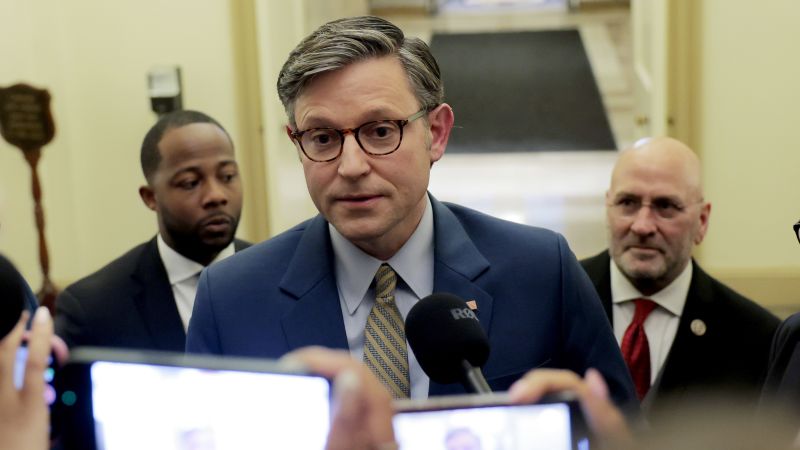On a pivotal Wednesday evening, a significant House committee cast its vote to advance a pivotal legislative package from President Donald Trump to the full House of Representatives. This decision came after an extended session that unfolded over nearly 22 straight hours of deliberation and debate, marking a consequential moment in the ongoing struggle for dominance within the Republican Party. The stage was set for a crucial vote that would not only influence Trump’s legislative ambitions but would also highlight the deep divisions within the GOP.
The urgency surrounding the vote escalated when House Republicans unveiled a series of major amendments to the sprawling domestic policy bill earlier that same evening. These adjustments were the outcome of intensive negotiations among Republican leaders, aimed at garnering the support of essential party members who had expressed hesitation regarding the original proposals. The changes indicated a concerted effort to bridge gaps among the various factions within the party, showcasing the delicate balancing act that Speaker Mike Johnson must perform to keep the party unified and focused on his ambitious legislative objectives.
Racing against the clock, House GOP leaders were determined to bring this revised bill to the floor for a vote, targeting the early hours of Thursday morning for the occasion. With a highly precarious majority, Johnson could tolerate only a limited number of dissenters if he hoped to adhere to a challenging deadline of advancing the complete package to the Senate by Memorial Day. This timeline placed immense pressure on the Speaker, necessitating a careful navigation of conflicting interests that existed within his conference.
In response to the impending vote, Johnson spent hours in meetings, striving to finalize a deal that could appease both the hardline conservatives who threatened to oppose major tax and spending reforms and the centrist Republicans who remained skeptical about some of the more extreme amendments being proposed. This effort to unify the party highlighted the inherent challenges facing the GOP as it sought to enact legislation that would align with the range of ideologies present within its ranks.
One of the pivotal components of the revised package involves stricter work requirements for Medicaid. These requirements are now set to take effect by the end of 2026, as opposed to the previous timeline aimed for 2029. Critics of this amendment have raised concerns that this could lead to an increase in uninsured individuals and may affect overall cost savings associated with the bill. Additionally, the amendment tightens the eligibility criteria for what constitutes a “qualified alien,” thereby further constraining access to the program.
Included within the modifications is a notable provision that presents incentives to the 10 states that have yet to expand Medicaid under the Affordable Care Act. These states will now have the option to allocate larger supplemental payments to healthcare facilities, thus providing motivation to maintain the status quo of non-expansion. Moreover, the updated content effectively targets the Affordable Care Act itself, introducing changes anticipated to yield higher insurance premiums and potentially decrease overall enrollment.
Moreover, the legislative text formalizes a significant win for Johnson: the controversial SALT (State and Local Tax) cap. This adjustment allows taxpayers to deduct state and local income taxes up to $40,000 for specific income brackets, responding to demands from high-tax states such as New York, New Jersey, and California where initial proposals facing resistance were capped at $30,000.
Another adjustment that received attention pertains to energy tax credits established during the Biden administration, with plans to phase them out more rapidly than previously anticipated. New projects must now commence within a 60-day window or be operational by the close of 2028 to qualify for these incentives. Other changes include a rebranding of a type of savings account for children, shifting from “MAGA accounts” to “TRUMP accounts,” and the elimination of a tax on firearm suppressors, as advocated by Rep. Andrew Clyde from Georgia.
The amendment also excludes provisions allowing for the sale of federal lands in Nevada and Utah, a significant concession to Rep. Ryan Zinke, a prominent figure in the Trump administration. As journalists Tami Luhby, Manu Raju, and Lauren Fox reported, these developments signal a substantial chapter in the GOP’s ongoing legislative efforts amid a charged political environment.
In summary, the actions of the House committee on this particular evening underscored the persistent challenges facing the Republican Party as it grapples with its internal divisions while seeking to fulfill its legislative promises to constituents and the broader electorate.



